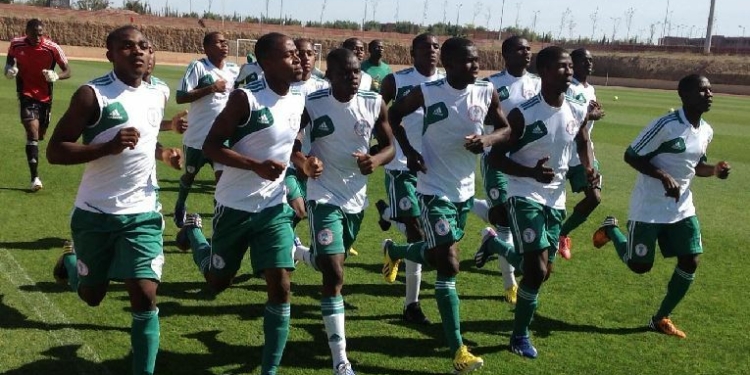On Friday, 9th August 2019, at exactly 8pm (GMT), the 2019/2020 season of the English Premier League (EPL) will kick off with the European champions – Liverpool FC playing host to newly promoted Norwich City FC at their 54,000 capacity Anfied ‘fortress’. The same venue where almighty Barcelona featuring Suarez, Messi, Coutinho, et al., failed to score last May and in the process threw away a 3-nil advantage in the Champions League semi-final. Anfield rocked that night. However, I digress.
EPL is popular in Nigeria
As the centre referee blows the whistle to get the game going at 8pm GMT, you can bet on it that all bars and viewing centres in Nigeria will be full to the brim while every living room of every football loving family tuned to the pay per view sport channel beaming the game live. I can also assure you that many will not be tuning in to cheer Norwich’s 18 years old, Adam Uche Idah – who is of Nigerian origin but plays international football for Republic of Ireland. In fact, most Nigerians would not have heard of him. The pre-kick-off headline grabbers will be the usual suspects: Mo Salah, Sadio Mane, Origi, Firmino, VVD and young Trent Alenxander-Arnold.
EPL Love affair damages NPFL
Nigerian football fans’ love affair with the English Premier League is however damaging the future and development of the game in Nigeria especially the Nigerian Professional Football League (NPFL). Very few fans watch the
domestic league and hardly can you get a young (or old) Nigeria football fan to name ten players of a team in the NPFL. Meanwhile, most Nigerian football fans will name all the starting eleven of the twenty teams in the EPL. So, heart wrenching.
Broadcasters & Sponsors are gone too
Even Broadcasters except for a few, such as Channels Sports have long abandoned the game locally. You are more likely to watch extended highlights of EPL games on TV than highlights of the domestic league. Same way big Nigerian brands (Chivita, Star Lager, Airtel, to mention a few) have migrated with the fans to the EPL signing sponsorship deals and in the process taking badly needed funds away from the professional game in Nigeria.
There are no signs that this trend will be reversed anytime soon. Drought of funds will mean even more dilapidated sporting infrastructures, unemployment, delayed or non-payment of wages, salaries, bonuses and talent drain – as raw talents will continue to pursue the elusive lucre of professional football abroad. The damage perpetrated by the love of EPL pervades every football sector. What about merchandising? Unbelievably, Lagos came second five years ago after London for the number of replica Chelsea shirts sold worldwide. Replica shirts of Stationery Stores FC or Mountain Top FC both in Lagos are not trending or in demand at all. Stamford Bridge is racking in huge revenue from Lagos. Little wonder then why one of Nigeria’s monarchs recently mooted his desire to put in a bid to buy Chelsea FC. Why not? Nigerians are major stakeholders in the club after all.
Solution
More seriously, how can this trend be bucked? Many analysts and eggheads have pondered over this multi-billion dollar question over the past decade. Some have suggested more funding from government, merging of leagues across the sub-continent, etc. For me it is simple. We have to adopt the Nollywood/Nigerian Music model. First and foremost, we must put our domestic league back on free-to-air TV. Remember in the late 80s and early 90s that Nollywood and Nigerian music was the butt of jokes due to perceived low quality and poor scripts. But they kept producing and filling broadcasting space with their productions. Today, Nollywood is best friend with Netflix while Nigerian Music stars have shut down Portugal this weekend.
Broadcasters and sport entrepreneurs must invest in quality equipment for live game coverage, train commentators and analysts to world standards and show every match live every Saturday, Sunday and even midweek. Sports and football in particular is spontaneous, emotive and dramatic coupled with the abundance of talents we have in Nigeria. Just take a trip to Ajegunle or Ogudu GRA on a Saturday morning, you will marvel.
After a couple of consistent seasons, fans will return and naturally more sponsors. It sounds simplistic, I know. But it will not be easy. However, with hard work, perseverance, professionalism, sacrifice and unity of purpose, we can begin to reawaken the fallen giant known as Nigerian football irrespective of the love affair with EPL. Both brands can coexist, be complementary and successful. We must start now though.
Bob is a doctoral researcher at the Institute for Sport Business, Loughborough University London. He is a Board member of both EASM and AFGRAS. He can be reached at bobolukoya@gmail.com





Discussion about this post